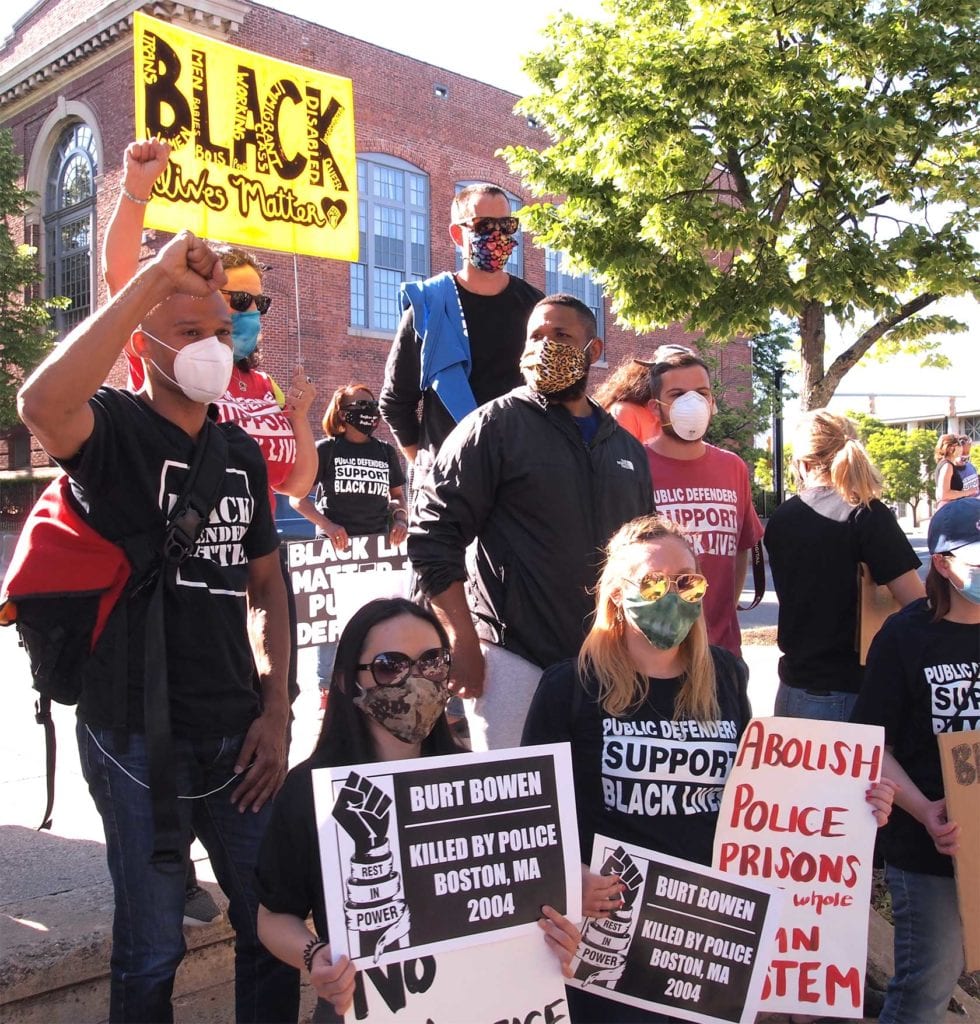Mayor, white councilors get majority of police officers’ political donations

Boston Police officers have contributed more than $1 million to Boston elected officials over the last 10 years, with the lion’s share of the dollars — $456,548 — going to Mayor Martin Walsh, according to an analysis released by the political organizing group Mijente and ACLU of Massachusetts this week.
The data, analyzed by Boston University’s BU Spark! data project, show the majority of campaign contributions to city councilors going to a handful members with at-large Councilor Michael Flaherty receiving $38,700 since his re-election to the council in 2013 and at-large Councilor Annissa Essaibi-George receiving $26,700.
Councilors Frank Baker, Matt O’Malley and Ed Flynn all received more than any of the black councilors, including Council President Kim Janey, who netted $6,100 from police officers and former Council President Andrea Campbell, who received $5,400.
The donations from police represent a small sliver of overall donations to candidates. Donors associated with the real estate industry, including real estate brokers, developers, architects, attorneys and building trades members have long dominated political donations in cities across the United States.
But as elected officials take on thorny police-related issues such as spending for police overtime and the Boston Police Department’s sharing of information with federal immigration authorities, the contributions highlight a growing split on the Council between a mostly Black and Latino cohort of councilors who are pushing for reforms and a mostly-white cohort who are pushing back.
The split surfaced in June, when councilors Michelle Wu, Ricardo Arroyo, Julia Mejia, Campbell and Janey voted against the Walsh administration budget, largely in response to activists groups’ calls for the city to reduce the police budget by 20 percent and increase funding for social services targeting neighborhoods that are experiencing violence. Councilor Lydia Edwards was the sole black councilor to vote for the Walsh administration budget.
The same split may occur again as councilors debate funding for the Boston Regional Intelligence Center, an information-gathering arm of the Boston Police Department that in the past has shared information on undocumented immigrants that led to their detention and deportation by federal immigration authorities.
Police officers are not shy about weighing in with their wallets on municipal policy. In the four weeks after Walsh approved an 8% pay raise for officers that added $68 million to the department’s budget, 65 police officers donated $25,525 to the mayor’s campaign account.
Activists with Mijente point out that the Walsh administration is currently negotiating with police unions around a new contract. The public is largely in the dark around those negotiations, noted Mijente member Jonathan Rodrigues.
“We don’t know what the mayor is going to demand from the police in this contract,” he said.
Earlier in the summer, thousands of protesters filled Boston’s streets during demonstrations downtown and in Roxbury, calling for police reforms. While the demonstrations kicked off in the wake of the death of George Floyd, who suffocated when a Minneapolis police officer knelt on his neck for more than eight minutes, the demands of local demonstrators were specific to Boston.
Demonstrators with the youth-led group For the People called for a 20% cut to the $414 million police budget. The demonstrators asked that the $82 million that would come from such a cut be reinvested into youth jobs, mental health counselors and social workers for Boston Public Schools and violence prevention programs.
Walsh instead said he would cut 20 percent from the $60 million police overtime budget and invest the $12 million in savings into the Boston Public Health Commission, community-based programs and housing support for youth experiencing homelessness. Walsh said $2 million of the savings would go back into the police department to fund mental health support services.
Walsh’s move, and the mostly-white collection of councilors who backed his budget, have left activists feeling out-gunned by the police union. The political action committee of the largest police union in Boston, the Boston Police Patrolmen’s Association, reported a balance $460,231 in its August filing with the Office of Campaign and Public Finance.
While community activists don’t have the same deep pockets as police officers, a quarter of whom earned more than $200,000 last year, Mijente activist Vanessa Snow says community members need to exert their influence.
“We need to have strategies about how our communities are building the same influence in these conversations, if not more,” she said.







